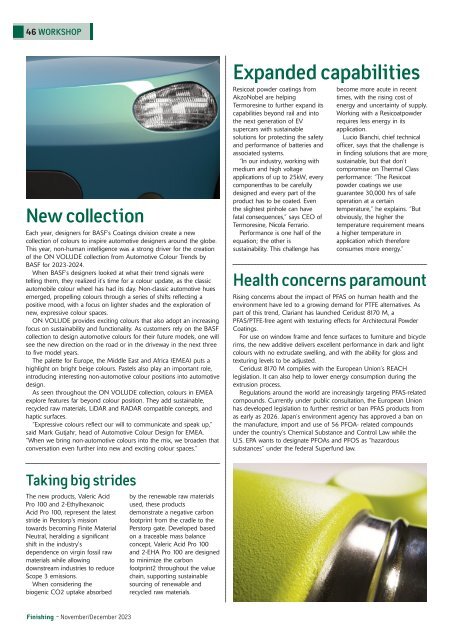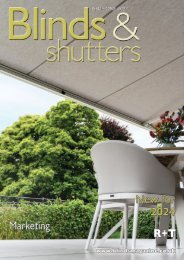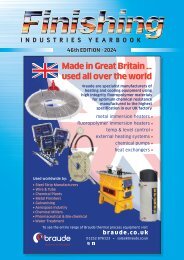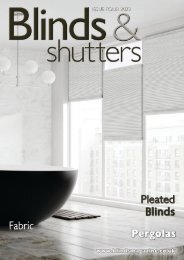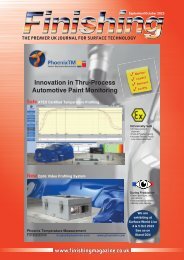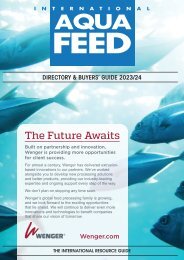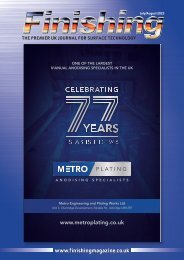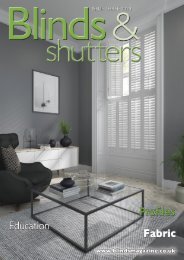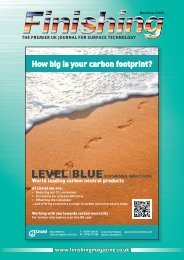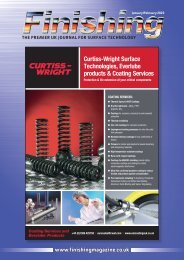Finishing - November-December 2023
Inflation is still high and we seem to be paying more for everything, especially cars. The most common way for people to buy new cars in the UK is PCP finance and with deals coming to an end and new interest rates on car loans higher, will this see a decrease in new car sales. So what will this mean for the car and finishing industry in the UK? My feeling is that car buying, especially in cities and big towns, will change. People will look at alternatives such as renting cars and using apps such as Uber, instead of buying a depreciating asset. Technology might be making personal car ownership a thing of the past. But I don’t thing this means there will be fewer cars on the road, just fewer owners. This issue has the winners of the BCF Awards, plus news of a win for the BCF itself!
Inflation is still high and we seem to be paying more for everything, especially cars. The most common way for people to buy new cars in the UK is PCP finance and with deals coming to an end and new interest rates on car loans higher, will this see a decrease in new car sales. So what will this mean for the
car and finishing industry in the UK?
My feeling is that car buying, especially in cities and big towns, will change. People will look at alternatives such as renting cars and using apps such as Uber, instead of buying a depreciating asset. Technology might be making personal car ownership a thing of the past. But I don’t thing this means there will be fewer cars on the road, just fewer owners.
This issue has the winners of the BCF Awards, plus news of a win for the BCF itself!
Create successful ePaper yourself
Turn your PDF publications into a flip-book with our unique Google optimized e-Paper software.
46 WORKSHOP<br />
New collection<br />
Each year, designers for BASF’s Coatings division create a new<br />
collection of colours to inspire automotive designers around the globe.<br />
This year, non-human intelligence was a strong driver for the creation<br />
of the ON VOLUDE collection from Automotive Colour Trends by<br />
BASF for <strong>2023</strong>-2024.<br />
When BASF’s designers looked at what their trend signals were<br />
telling them, they realized it’s time for a colour update, as the classic<br />
automobile colour wheel has had its day. Non-classic automotive hues<br />
emerged, propelling colours through a series of shifts reflecting a<br />
positive mood, with a focus on lighter shades and the exploration of<br />
new, expressive colour spaces.<br />
ON VOLUDE provides exciting colours that also adopt an increasing<br />
focus on sustainability and functionality. As customers rely on the BASF<br />
collection to design automotive colours for their future models, one will<br />
see the new direction on the road or in the driveway in the next three<br />
to five model years.<br />
The palette for Europe, the Middle East and Africa (EMEA) puts a<br />
highlight on bright beige colours. Pastels also play an important role,<br />
introducing interesting non-automotive colour positions into automotive<br />
design.<br />
As seen throughout the ON VOLUDE collection, colours in EMEA<br />
explore features far beyond colour position. They add sustainable,<br />
recycled raw materials, LiDAR and RADAR compatible concepts, and<br />
haptic surfaces.<br />
“Expressive colours reflect our will to communicate and speak up,”<br />
said Mark Gutjahr, head of Automotive Colour Design for EMEA.<br />
“When we bring non-automotive colours into the mix, we broaden that<br />
conversation even further into new and exciting colour spaces.”<br />
Expanded capabilities<br />
Resicoat powder coatings from<br />
AkzoNobel are helping<br />
Termoresine to further expand its<br />
capabilities beyond rail and into<br />
the next generation of EV<br />
supercars with sustainable<br />
solutions for protecting the safety<br />
and performance of batteries and<br />
associated systems.<br />
“In our industry, working with<br />
medium and high voltage<br />
applications of up to 25kW, every<br />
componenthas to be carefully<br />
designed and every part of the<br />
product has to be coated. Even<br />
the slightest pinhole can have<br />
fatal consequences,” says CEO of<br />
Termoresine, Nicola Ferrario.<br />
Performance is one half of the<br />
equation; the other is<br />
sustainability. This challenge has<br />
become more acute in recent<br />
times, with the rising cost of<br />
energy and uncertainty of supply.<br />
Working with a Resicoatpowder<br />
requires less energy in its<br />
application.<br />
Lucio Bianchi, chief technical<br />
officer, says that the challenge is<br />
in finding solutions that are more<br />
sustainable, but that don’t<br />
compromise on Thermal Class<br />
performance: “The Resicoat<br />
powder coatings we use<br />
guarantee 30,000 hrs of safe<br />
operation at a certain<br />
temperature,” he explains. “But<br />
obviously, the higher the<br />
temperature requirement means<br />
a higher temperature in<br />
application which therefore<br />
consumes more energy.”<br />
Health concerns paramount<br />
Rising concerns about the impact of PFAS on human health and the<br />
environment have led to a growing demand for PTFE alternatives. As<br />
part of this trend, Clariant has launched Ceridust 8170 M, a<br />
PFAS/PTFE-free agent with texturing effects for Architectural Powder<br />
Coatings.<br />
For use on window frame and fence surfaces to furniture and bicycle<br />
rims, the new additive delivers excellent performance in dark and light<br />
colours with no extrudate swelling, and with the ability for gloss and<br />
texturing levels to be adjusted.<br />
Ceridust 8170 M complies with the European Union’s REACH<br />
legislation. It can also help to lower energy consumption during the<br />
extrusion process.<br />
Regulations around the world are increasingly targeting PFAS-related<br />
compounds. Currently under public consultation, the European Union<br />
has developed legislation to further restrict or ban PFAS products from<br />
as early as 2026. Japan’s environment agency has approved a ban on<br />
the manufacture, import and use of 56 PFOA- related compounds<br />
under the country’s Chemical Substance and Control Law while the<br />
U.S. EPA wants to designate PFOAs and PFOS as “hazardous<br />
substances” under the federal Superfund law.<br />
Taking big strides<br />
The new products, Valeric Acid<br />
Pro 100 and 2-Ethylhexanoic<br />
Acid Pro 100, represent the latest<br />
stride in Perstorp's mission<br />
towards becoming Finite Material<br />
Neutral, heralding a significant<br />
shift in the industry's<br />
dependence on virgin fossil raw<br />
materials while allowing<br />
downstream industries to reduce<br />
Scope 3 emissions.<br />
When considering the<br />
biogenic CO2 uptake absorbed<br />
by the renewable raw materials<br />
used, these products<br />
demonstrate a negative carbon<br />
footprint from the cradle to the<br />
Perstorp gate. Developed based<br />
on a traceable mass balance<br />
concept, Valeric Acid Pro 100<br />
and 2-EHA Pro 100 are designed<br />
to minimize the carbon<br />
footprint2 throughout the value<br />
chain, supporting sustainable<br />
sourcing of renewable and<br />
recycled raw materials.<br />
<strong>Finishing</strong> – <strong>November</strong>/<strong>December</strong> <strong>2023</strong>


